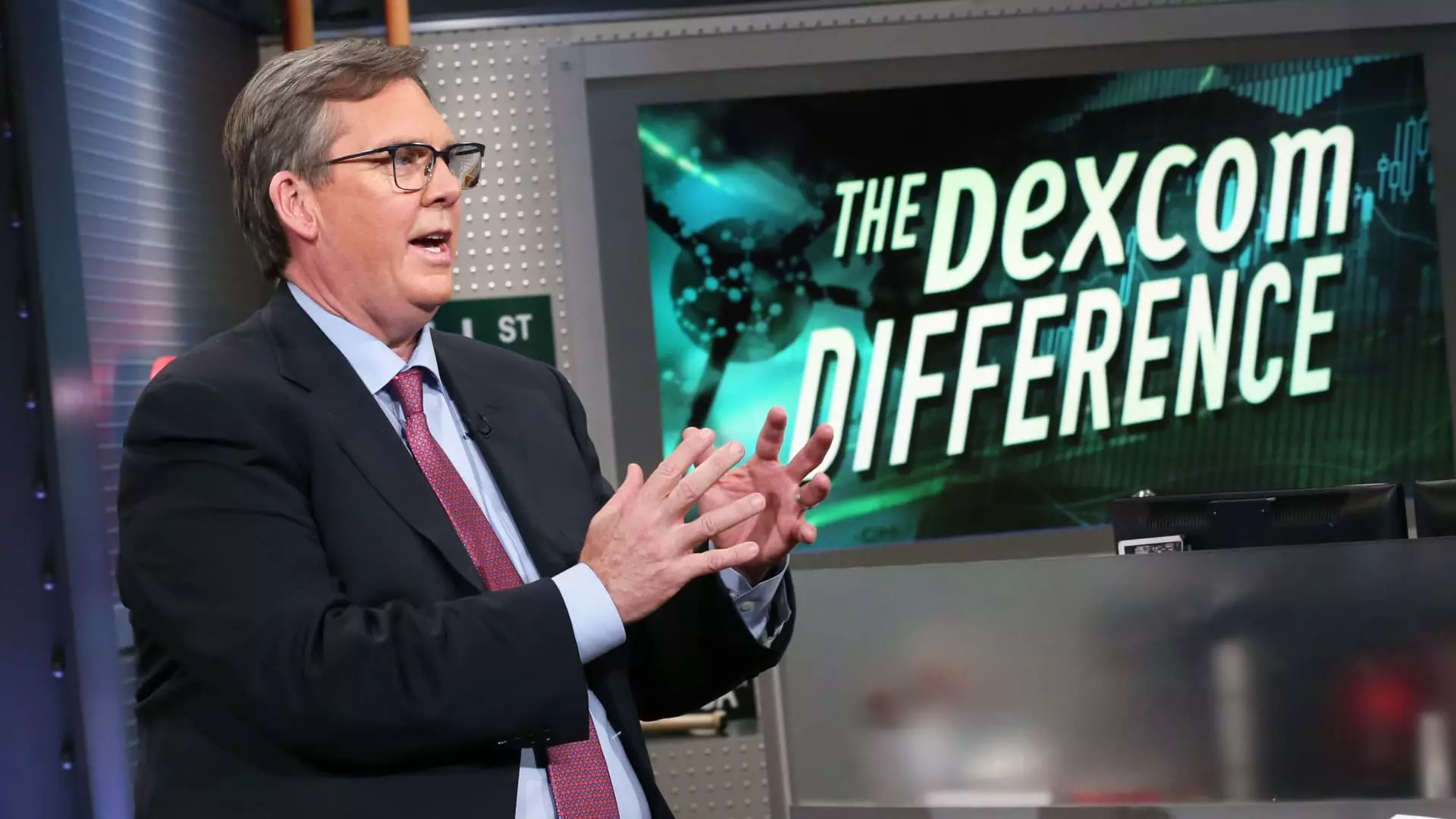Dexcom, a prominent player in the diabetes management sector, reported its third-quarter results recently, revealing an intriguing juxtaposition between regulatory achievements and market challenges. While the company surpassed analysts’ expectations in terms of earnings, the overall narrative was clouded by a notable decline in U.S. revenue. Specifically, Dexcom’s earnings per share came in at 45 cents, slightly exceeding the 43 cents anticipated by LSEG. Furthermore, total revenue reached $994 million, a marginal increase from the previous year’s $975 million, yet it fell short of fully offsetting the reductions in U.S. revenue streams.
One of the most concerning insights from the earnings report was the 2% decline in U.S. revenue, dropping to $713.6 million from the previous year. This trend starkly contrasts with the overall revenue growth of 2% for the company. Such discrepancies may point to shifting dynamics in the U.S. market, suggesting potential saturation or increasing competition. Despite Dexcom’s robust international performance, the contraction in domestic sales warrants scrutiny, especially in light of the company’s recent product launches and competitive strategy.
Dexcom’s recent introduction of Stelo, its first over-the-counter continuous glucose monitor aimed at adults who do not require insulin, marks a significant strategic move. While market reception and future sales figures will ultimately dictate success, the launch signals Dexcom’s intent to broaden its accessibility to diabetic patients. Such innovations may help mitigate U.S. revenue declines over time, but immediate impacts may remain muted as the company grapples with established customer bases and entrenched competition.
In the midst of fluctuating performance, Dexcom has opted to maintain its full fiscal year revenue guidance at $4 billion to $4.05 billion. This figure reflects a downward adjustment from earlier forecasts, a decision that could alienate some investors still reeling from the company’s substantial losses—more than 40%—following second-quarter results. Compounding these concerns is the announcement of the retirement of Teri Lawver, the chief commercial officer. Such changes in leadership, especially in crucial commercial divisions, might introduce additional uncertainty during a transformative time for the company.
CEO Commentary: Optimism Amidst Challenges
Despite the hurdles, CEO Kevin Sayer expressed cautious optimism during the earnings call, emphasizing improvements in key operational areas during the third quarter. He attributed the earlier revenue decline to strategical changes within the sales team and noted a decrease in the expected influx of new customers. As Sayer also takes over leadership of the commercial division, the company’s trajectory will depend heavily on how effectively he addresses these internal challenges while spearheading new initiatives.
Dexcom’s latest financial results expose both potential and pitfalls within the company. As it seeks to navigate U.S. market fluctuations, enhance product offerings, and adjust leadership dynamics, the stakes remain high. The path forward relies on strategic foresight, adaptive measures to counteract revenue declines, and the successful launch of new products like Stelo—all while maintaining investor confidence in an increasingly volatile market landscape.

